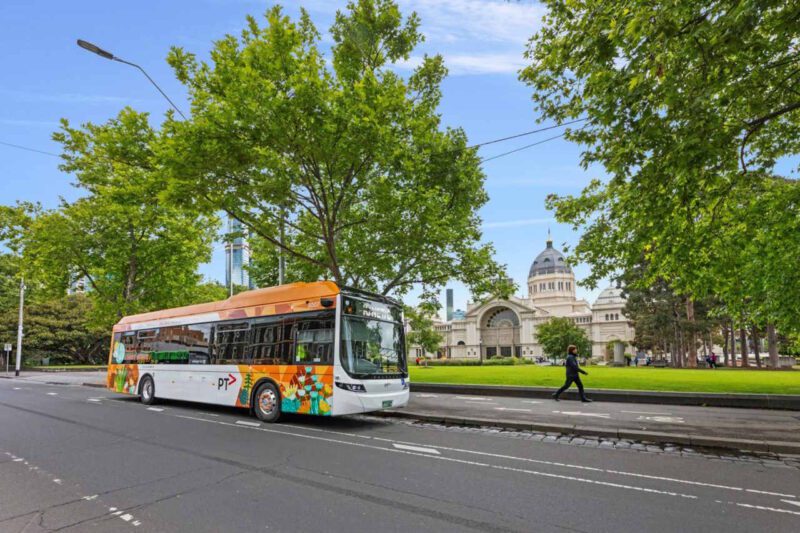The Victorian government has launched its official roadmap to electrify the state’s bus fleet, building on the commitment that all new public transport buses purchased from July 1, 2025, to be zero emission buses.
The Zero Emission Bus (ZEB) Plan has been designed to guide the phase-out of Victoria’s existing fleet of diesel buses and provide operators and industry with clarity on how the transition will unfold.
With over 4,500 buses to replace, the ZEB Transition Plan will see some operators begin the switch immediately to ZEBs, such as the larger operators in Melbourne and large regional centres.
Smaller operators around the state, particularly in regional areas, will take a slower and more gradual approach to the transition.
Bus trials began following the Victorian 2020/21 Budget which provided funding to six Victorian bus operators to trial 52 ZEBs on existing routes across the state’s metropolitan and regional bus networks. These buses are already operating on the state’s bus network, which includes two hydrogen fuel cell buses.
Victoria’s ZEB Transition Plan does not mandate any particular technology, and it is up to operators to determine whether battery electric (BEB) or hydrogen fuel cell buses (HFCB) are the most appropriate.
However, as the government noted in the ZEB Plan, “following feedback from operators, the Victorian government expects BEBs to support the initial introduction of ZEBs, particularly for metropolitan services.”
Three contracts were awarded in September as part of Victoria’s Metropolitan Zero Emission Bus Franchises under what was described by the Labor government as Victoria’s first zero emission bus contracts.
The three 10-year franchise contracts, which cover 131 public routes and more than 230 school services across Melbourne, will fast-track the replacement of existing diesel buses with 600 new battery electric buses by 2035.
Operators of these new franchises will be responsible to lead procurement of zero emission buses as well as the associated depot and infrastructure upgrades.
Under the existing Melbourne Bus Franchise contracts, 36 ZEBs have also already been funded and are being progressively introduced.
All new buses ordered from 1 July 2025 will be required to be zero emission, with almost 690 such buses already funded through the Labor government’s $20 million ZEB trial and current contracts with bus operators.
Over the next four years, a further 250 low floor buses will be replaced by zero emission buses.
Following the trials, and consultation with bus operators, the broader bus industry, and interested Victorians, the resulting ZEB Plan lays out the pathway for “a balanced, fair, and sequenced” transition.
The plan can be found here.
“We’re converting Victoria’s entire public bus fleet to be quieter and more comfortable for passengers while at the same time slashing emissions,” said Gabrielle Williams, Victorian minister for public and active transport.
“We are working with the bus industry to ensure the ZEB transition not only improves the customer experience, but also boosts local manufacturing, creating even more local jobs.”
The ZEB Plan also aims to create opportunities for manufacturing across Victoria, with a 62 per cent local content requirement, including activities that support supply chain research and development, access to global best practice, technology transfer and career pathways, apprenticeships and workforce skills development.
Joshua S. Hill is a Melbourne-based journalist who has been writing about climate change, clean technology, and electric vehicles for over 15 years. He has been reporting on electric vehicles and clean technologies for Renew Economy and The Driven since 2012. His preferred mode of transport is his feet.

